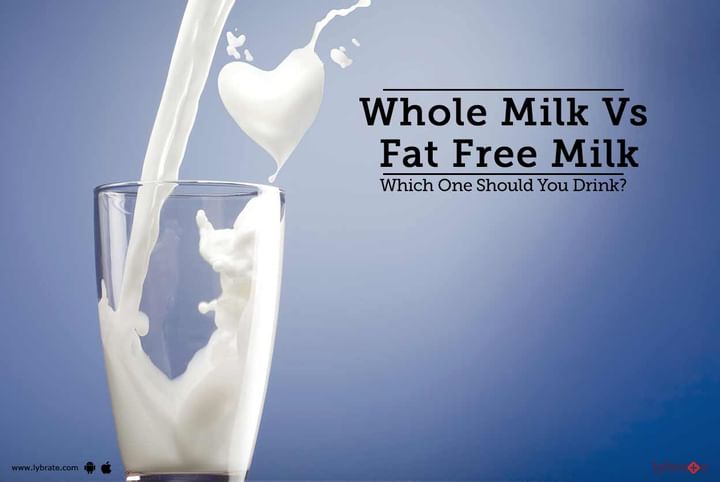Whole Milk Vs Fat Free Milk - Which One Should You Drink?
Milk is the only food item that works as a standalone meal in childhood and a nutritious beverage in adulthood. Be it a tall glass of plain milk or rich lattes, life is just incomplete without a splash of pristine goodness. These days, milk comes in varieties - full cream, single-toned, double-toned, skimmed milk, and what not!
Well, recent developments have shown that fat might not be as harmful as people originally thought it was. Fats can prove to be beneficial too. It is capable of providing the feeling of fullness as well as helps in absorbing vitamins that are fat-soluble. According to research, people who consume full fat or whole milk are on equal terms with people who consumed fat-free milk, as far as development of type-2 diabetes and cardiovascular disease is concerned. However, when it comes to losing weight, whole milk i.e. full-fat milk should be preferred over fat-free milk.
- Various surveys have reported that a majority of the people who consume whole milk exhibit less weight gain, lower body weights as well as low risks of obesity. The argument that excess calories are beneficial for the waistline is a topic that is prevalent even today. According to some researchers, as far as weight gain is concerned, all calories are not equal. Additionally, if the focus is solely on the number of calories per serving, then a huge factor leading to obesity is ignored.
- This factor is called fullness. Dr. Mario Kratz, author of the aforementioned review and a designated nutrition scientist at the Fred Hutchinson Cancer Research Center in Seattle, states that the removal of fatty acids from skimmed milk results in a delayed feeling of fullness as well as staying full. He also states that the fatty acids in milk affect hormone regulation and gene expression. In simpler words, these acids might crank up the amount of energy burned by the body as well as limit the storage of fat in the body.
- All these findings help in showing that consumption of whole milk is preferable to low fat, as far as the risk of obesity is concerned. However, it does not mean that people should engage in consuming only whole milk and 'use butter in all the recipes'. However, as far as the comparison between skim i.e. fat-free milk and whole milk is concerned, the available research argues and suggests that full-fat milk is the way to go.



+1.svg)
